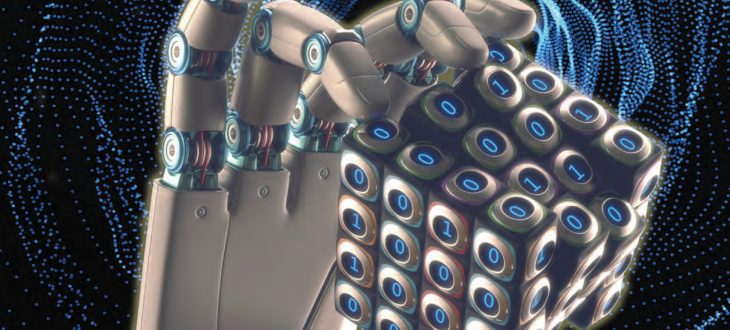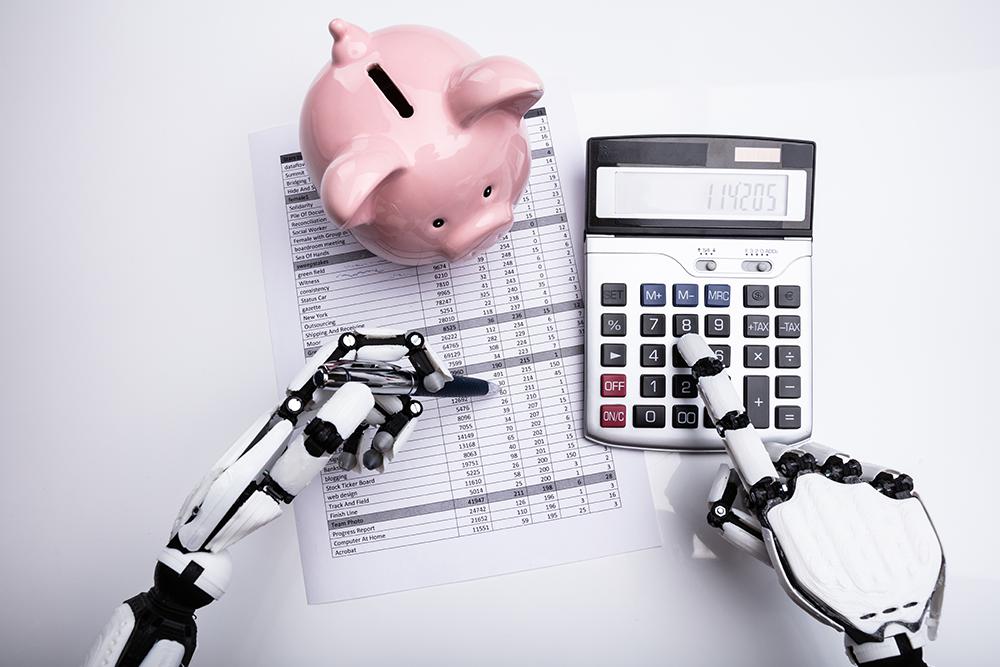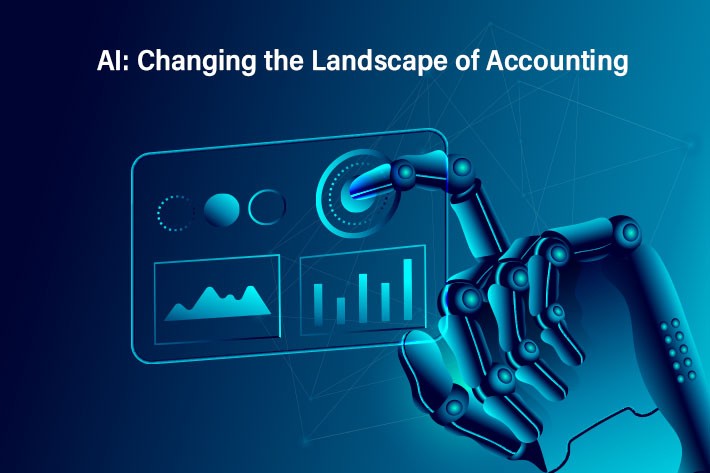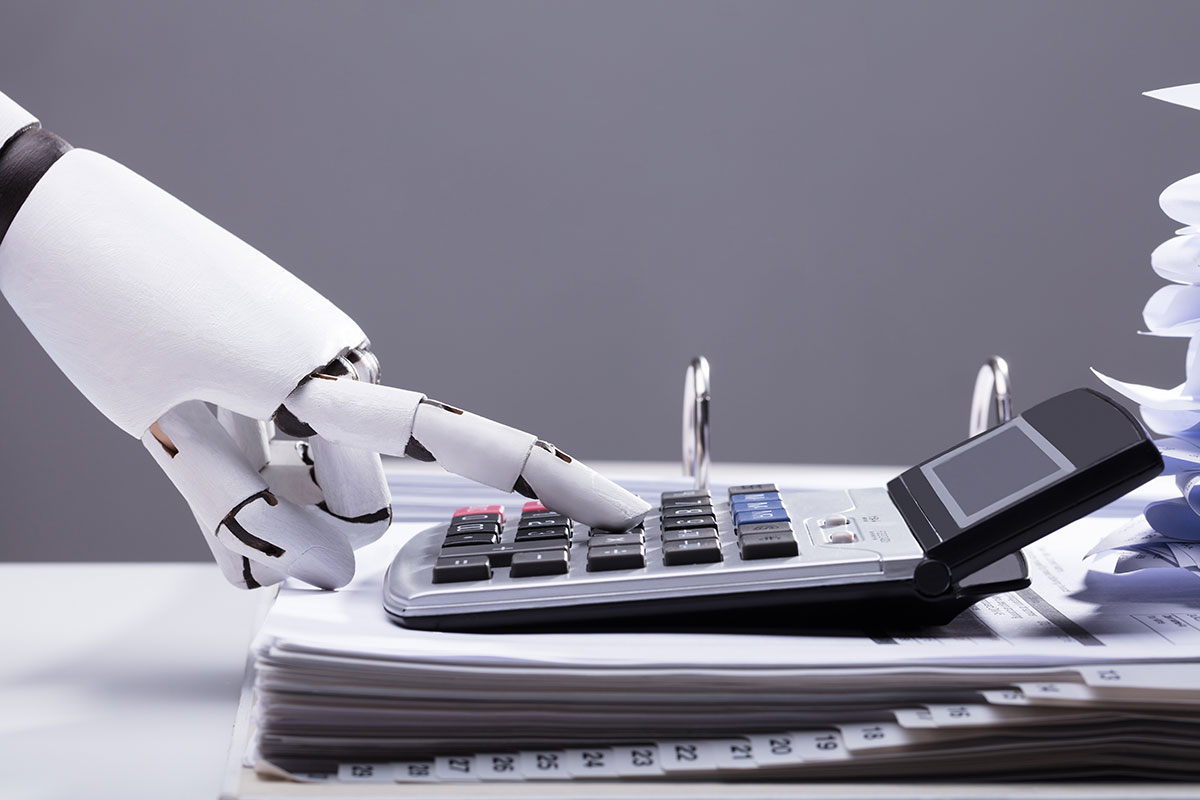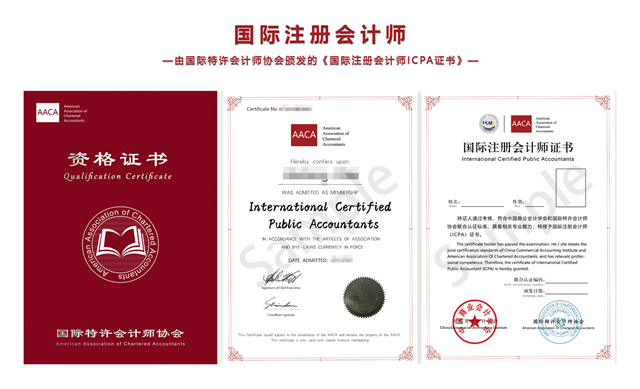审计中的机器学习Machine Learning in Auditing
Current and Future Applications
当前和未来的应用
Machine learning is a key subset of artificial intelligence (AI), which originated with the idea that machines could be taught to learn in ways similar to how humans learn. While humans are just beginning to comprehend the dynamic capabilities of machine learning, the concept has been around for decades. The proliferation of data, primarily due to the rise of the Internet and advances in computer processing speed and data storage, has now made machine learning a significant component of modern life. Common examples of machine learning can be found in e-mail spam filters and credit monitoring software, as well as the news feed and targeted advertising functions of technology companies such as Facebook and Google.
机器学习是人工智能(AI)的一个重要分支,人工智能起源于这样一个理念:机器可以通过类似于人类学习的方式来学习。当人类刚刚开始理解机器学习的动态能力时,这个概念已经存在了几十年。数据的激增,主要是由于互联网的兴起以及计算机处理速度和数据存储的进步,现在已经使机器学习成为现代生活的一个重要组成部分。机器学习的常见例子可以在电子邮件垃圾邮件过滤器和信用监控软件中找到,也可以在Facebook和Google等科技公司的新闻提要(News Feed)和目标广告功能中找到。
Machine learning has the potential to disrupt nearly every industry during the next several years, and the auditing profession is no exception. Rather than relying primarily on representative sampling techniques, machine learning algorithms can provide firms with opportunities to review an entire population for anomalies. When audit teams can work on the entire data population, they can perform their tests in a more directed and intentional manner. In addition, machine learning algorithms can “learn” from auditors’ conclusions on specific items and apply the same logic to other items with similar characteristics.
机器学习有可能在未来几年内扰乱几乎所有行业,审计行业也不例外。机器学习算法不是主要依赖于典型的抽样技术,而是可以为企业提供机会来审查整个群体的异常情况。当审计团队可以处理整个数据总体时,他们可以以更直接、更有目的的方式执行测试。此外,机器学习算法可以从审计人员对特定项目的结论中“学习”,并将相同的逻辑应用到具有类似特征的其他项目中。
What is Machine Learning?
什么是机器学习?
Machine learning is a subset of artificial intelligence that automates analytical model building. Machine learning uses these models to perform data analysis in order to understand patterns and make predictions. The machines are programmed to use an iterative approach to learn from the analyzed data, making the learning automated and continuous; as the machine is exposed to increasing amounts of data, robust patterns are recognized, and the feedback is used to alter actions. Machine learning and traditional statistical analysis are similar in many regards, but different in execution. While statistical analysis is based on probability theory and probability distributions, machine learning is designed to find the combination of mathematical equations that best predict an outcome. Thus, machine learning is well suited for a broad range of problems that involve classification, linear regression, and cluster analysis.
机器学习是人工智能的一个子集,它使分析模型的建立自动化。机器学习使用这些模型来执行数据分析,以便理解模式并作出预测。机器被编程为使用迭代方法从分析的数据中学习,实现学习的自动化和连续性。当机器暴露在越来越多的数据中时,强劲的模式被识别出来,“反馈”被用来改变动作。机器学习和传统的统计分析在许多方面相似,但在执行上有所不同。虽然统计分析是基于概率论和概率分布,但机器学习的目的是找到#能预测结果的数学方程组合。因此,机器学习非常适合于涉及分类、线性回归和聚类分析的广泛问题。
Supervised learning is used in situations where historical data can be used to predict future outcomes, such as determining which customers are most likely to default on their debt. Unsupervised learning is used where there are no labels on the output variables; the system is not “told” what the assumed answer is, but instead figures out the data patterns on its own. Unsupervised learning contains different techniques that can be used on transactional data (e.g., cluster analysis) and may be beneficial if used as part of the risk assessment process to discover previously unforeseen risks. There is also semi-supervised learning, which contains a combination of labeled and unlabeled output data.
监督学习被用于“使用历史数据预测未来结果”的情况,例如确定哪些客户#有可能拖欠债务。无监督学习被用于输出变量上没有标签的地方;系统不会“被告知”假设答案是什么,而是自行计算出数据模式。无监督学习包含可用于交易数据(例如,聚类分析)的各种不同技术;如果能作为风险评估过程的一部分来使用,以发现先前未预见到的风险,则这些技术可能是有益的。另外还有半监督学习,它包含有标记和未标记的输出数据的组合。
The predictive reliability of machine learning is dependent on the quality of the historical data that has been input. New and unforeseen events may create invalid results if left unidentified or inappropriately weighted. As a result, human biases can play an important role in the use of machine learning. Such biases can affect which data sets are chosen for training the AI, the methods chosen for the process, and the interpretation of the output. Finally, although machine learning has great potential, its models are still currently limited by many factors, including data storage and retrieval, processing power, algorithmic modeling assumptions, and human understanding and judgment.
机器学习的预测可靠性取决于输入的历史数据的质量。如果未确定或权重不适当,新的和不可预见的事件可能会产生无效的结果。因此,人的偏好在机器学习的使用中起着重要的作用。这种偏差可能会影响为训练人工智能而选择的数据集、为过程选择的方法以及对输出的诠释。#后,虽然机器学习有很大的潜力,但其模型目前仍然受到许多因素的限制,包括数据的存储和检索、处理能力、算法建模假设以及人类的理解和判断。
Current and Potential Future Uses
当前和潜在的未来用途
Although there are limitations to the current capabilities of machine learning, it excels at performing repetitive tasks. Because an audit requires a vast amount of data and has a significant number of task-related components, machine learning has the potential to increase both the speed and quality of audits. The machine-based performance of redundant tasks should allow auditors more time for review and analysis, which would give them a greater ability to focus on the areas of greatest risk, as well as a better understanding of the larger picture.
虽然目前机器学习的能力有局限性,但它擅长于执行重复性任务。因为审计需要大量的数据,并且有大量与任务相关的组件,所以机器学习有可能提高审计的速度和质量。以机器为基础的冗余任务的执行应该让审计人员有更多的时间进行审查和分析,这将使他们更能专注于风险#大的领域,并更好地理解全局。
In the future, machine learning technology could allow CPA firms to detect patterns that currently might otherwise go unnoticed. For example, a restaurant might use historical financial data related to satellite imagery of parking lots, guest count information obtained from point of sale systems, and restaurant employee schedules to demonstrate a strong correlation between high revenues and the number of cars in parking lots during peak hours, high customer guest counts, and high employee wages. By recognizing these patterns, the system could identify locations with revenues inconsistent with vehicle counts, guest counts, or wages. This would allow the auditors to focus on restaurants with inconsistencies rather than selecting restaurants on a random basis.
在未来,机器学习技术可以让会计师事务所检测到目前可能会被忽视的模式。例如,餐厅可能会使用与停车场卫星图像,销售点系统获得的客人数量信息,以及餐厅员工时间表等相关的历史财务数据,来证明高收益与高峰时段停车场的汽车数量、高客流量,以及高员工薪资之间的强相关性。通过识别这些模式,系统可以识别哪些地点的收益与车辆数量、客人数量或员工薪资不一致。
Challenges for Auditors
审计师面临的挑战
Audit firms and regulators must overcome several barriers in order for machine learning technologies to reach their full capabilities. Obtaining relevant and useful data (particularly nonfinancial data) from clients and external sources may be difficult. Due to statutory and regulatory limitations, auditors do not typically have access to vast amounts of information from data stores like Google or Facebook. Auditors are also bound by certain ethical and client confidentiality requirements, which may limit their ability to access the quality and quantity of data needed to build their training datasets.
审计公司和监管者必须克服几个障碍,以便机器学习技术发挥其全部能力。从客户和外部来源获取相关和有用的数据(特别是非财务数据)可能很困难。由于法律法规的限制,审计人员通常无法从谷歌或Facebook等数据商店获取大量信息。审计人员还受到某些道德和客户保密要求的约束,这可能会限制他们获取构建培训数据集所需数据质量和数量的能力。
When relevant and useful data is available for use, auditors must understand and test the internal controls over data integrity and validate the completeness and accuracy of the input data in order to rely on the output. Data security and information integrity will be critically important in determining the reliability of the input data used in machine learning. Auditors will need to work with cybersecurity experts to determine that the client data is secure; otherwise, unauthorized access to financial and nonfinancial data may allow for inappropriate data manipulation that could skew the results.
当相关和有用的数据可供使用时,审计师必须理解和测试数据完整性的内部控制,并验证输入数据的完整性和准确性,以便信任输出数据。数据安全和信息完整性对于确定机器学习中使用的输入数据的可靠性至关重要。审计人员需要与网络安全专家合作,以确定客户数据是安全的。否则,未经授权访问财务和非财务数据可能会导致不适当的数据操作,从而扭曲结果。
Because of the inherent limitations of machine pattern-finding, auditors will continue to need an understanding of the individual business and its industry, as well as the external business environment and societal forces. For example, user accounts might be the best predictor of revenues for companies such as Facebook and therefore should be given the appropriate weighting in the internal algorithm. Without judgment as to what to specifically look for, the authenticity of accounts and the presence of “bots” may not be detectable by machines and could lead auditors to reach incorrect conclusions. Auditors will need to understand and validate the completeness and accuracy of the input data in order to reach an appropriate conclusion on the output. Furthermore, there will always be potential blind spots when evaluating empirical evidence; therefore, an auditor’s intuition will likely continue to be an important source of knowledge.
由于机器“模式发现”的固有局限性,审计师将继续需要了解单个企业及其行业,以及外部商业环境和社会力量。例如,对于Facebook这样的公司来说,用户账户可能是收益的#佳预测者,因此应该在内部算法中给予适当的权重。如果不判断具体要找什么,账户的真实性和“机器人程序”的存在可能无法被机器检测到,并可能导致审计人员得出错误的结论。审核员需要理解和验证输入数据的完整性和准确性,以便对输出得出适当的结论。此外,在评估经验证据时,总会有潜在的盲点;因此,审计师的直觉很可能继续是一个重要的知识来源。
Future auditors will need to become more versatile and have a solid understanding of information systems, data science, and general business, in addition to an increasingly complex set of accounting and auditing rules and regulations. Whereas in the past audits have had a largely transactional focus, future audits will become increasingly interconnected. Audit firms need to be aware of changing auditor skillsets in order to help manage the disruption risks associated with machine learning technologies.
未来的审计师需要变得更加多才多艺,除了要了解日益复杂的一套会计和审计规则和条例外,还需要对信息系统、数据科学和一般业务有扎实的了解。过去的审计主要侧重于交易,而未来的审计将日益侧重相互关联。审计公司需要意识到审计师技能的变化,以帮助管理与机器学习技术相关的中断风险。
While machine learning technology affords auditors a greater ability to consider internal systematic relationships and external environmental forces, auditors must also exhibit a solid understanding of the input, processing, and output of data from a broader range of sources. In addition, while machine learning technology can provide significantly improved opportunities for auditors to explore their intuition, auditors must change their mode of thinking in order for these insights to be effective. Although it is impossible to foretell exactly how machine learning will ultimately change the audit process, now is the time to begin contemplating its current impact and future implications.
虽然机器学习技术为审计人员提供了更大的能力来考虑内部系统关系和外部环境因素,但审计师还必须对来自更广泛来源的数据的输入、处理和输出表现出扎实的理解。此外,虽然机器学习技术可以显著改善审计师探索直觉的机会,但审计师必须改变思维模式,以使这些见解有效。虽然无法准确预测机器学习#终将如何改变审计过程,但现在是开始考虑其当前影响和未来影响的时候了。
【AACA协会国际注册会计师ICPA雇主直聘平台】
响应国家战略
搭建企业国际化高端会计人才队伍
加快财会队伍建设与人才转型
(国际注册会计师ICPA证书样本)
原创编辑:ICPA中国办事处
- 首冠教育集团荣获网易新闻、网易教育盛典“金翼奖”2023年度综合实力教育集团奖项
- 【考试公告】2024年管理会计师能力水平项目(夏季考试)相关事项的通知
- 【招生简章】2024年北京国家会计学院高级管理会计师能力水平项目(战略、风险级)招生简章
- 考试计划丨关于 2024 年首冠教育 1+X 大数据财务分析职业技能等级证书考试计划的通知
- 重磅升级丨特许公认会计师公会(ACCA)北京国家会计学员“ESG与可持续发展管理师”能力水平项目正式发布
- 财政部北京监管局:“五个强化”推进内控管理工作
- 【考试公告】2024预算绩效评价主评人统一考试相关事项的通知
- 关于公布高级管理会计师CNMA(2024.1班)面授通知
- 关于2024年社会稳定风险评估师考试的通知
- 关于公布2024年内控管理师专业能力(ICM)考试时间的通知

